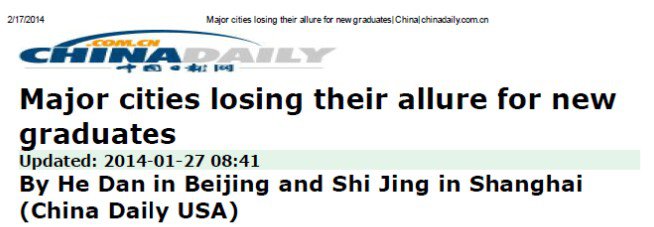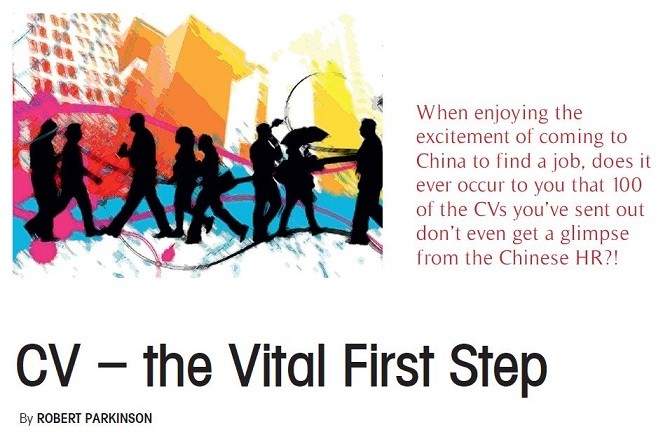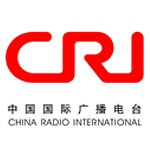RMG China Talent Flow Survey 2013 (TFS2) appears in China Daily again! This is the second version of Chinese job market and talent flow market research since 2012! There are 13 classic questions and specific analysis based on region, gender, education background, industry, function, age etc. People who are interested in getting more info about job market in China should not miss TFS2!
After much consideration, Ying Hanlu decided against finding work in Beijing and Shanghai and instead returned home after graduating in the summer.
“My boyfriend and I were having a hard time with a long-distance relationship, so after he found a job in our hometown I followed,” she said.
Rising property prices and tightened restrictions on hukou – permanent residence permits – made life “too uncertain”, said the 27-year-old, who finished graduate school at Shanghai International Studies University. She plans to marry her boyfriend next year.
A study released last week by online recruitment company Zhaopin and Peking University’s Institute of Social Sciences found collegestudents are showing less interest in working in China’s mega-cities – Beijing, Shanghai and Guangzhou – after graduation.
Only 38.7 percent of the 10,800 students from 200 universities interviewed said they would choose to work in the three cities aftergraduating, a downward trend for three consecutive years, from 53.8 percent in 2011 and 42.1 percent in 2012.
Soaring property prices, air pollution and traffic congestion were major reasons, according to the report, Best Employer Award2013.
Similar findings can be seen in the RMG China Talents-Flow Survey 2013. Although 35 percent of the 4,000 employees polledchoose to stay in one of the major cities, 53 percent said they had considered relocating to second or third-tier cities, up 16 percentyear-on-year.
Some expressed a willingness to move further to even smaller cities.
“As the central government is tightening the household registration policies in major cities, I suppose the inflow of talents will beaffected in cities such as Beijing and Shanghai,” said Max Ma, chief operating officer of FESCO Adecco in Shanghai, a multinationalhuman resources company.
Zhu Hongyan at Zhaopin said her company’s data show in recent years small and medium-sized cities in central and western regionsof China have provided more job opportunities than eastern counterparts.
“The local economies in developed cities in East China are slowing down while the inland cities are quickly catching up and many big companies are expanding their business to second or third-tier cities, which have created more jobs for educated young people,” she said.
Mobility among different cities is helpful for China to realize a more balanced development among different regions, said Robert Parkinson, founder and managing director of the international recruitment group RMG Selection.
Contact the writers at [email protected] and [email protected]
(China Daily USA 01/27/2014 page5)
Copyright By chinadaily.com.cn. All rights reserved






